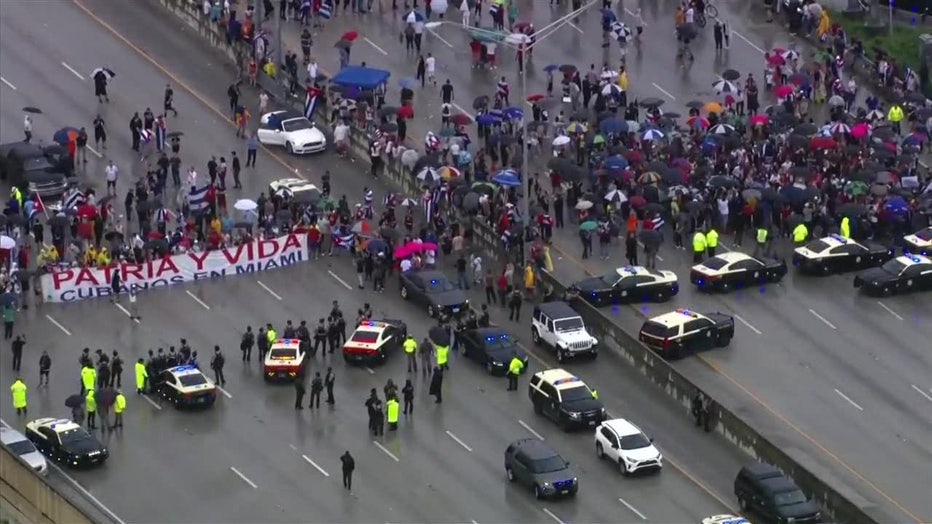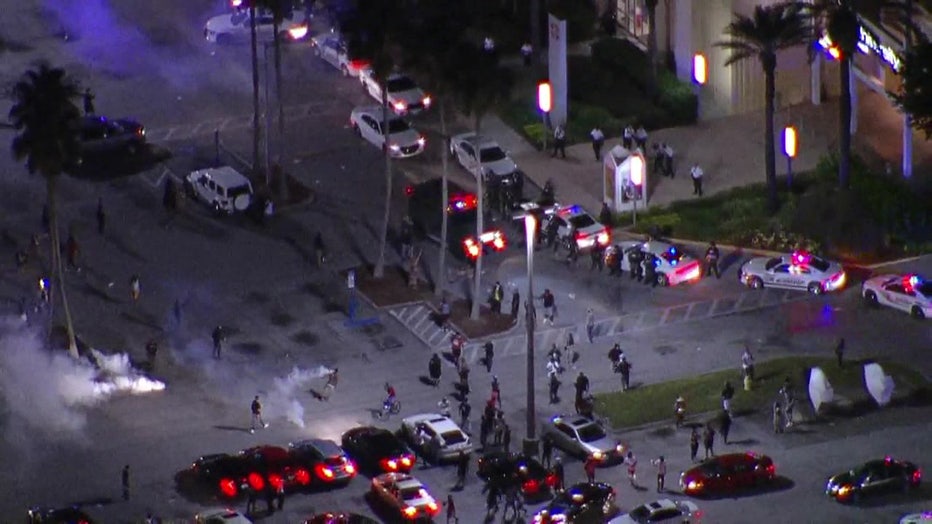First hearing set for lawsuit over Florida’s anti-riot law
The Cuban protests and the governor's new protest bill
The governor calls his new legislation an anti-riot law. Others call it an anti-protest law because it also includes language that applies to what we’re seeing in the peaceful -- or mostly peaceful – protests from Tampa to Orlando to Miami.
TALLAHASSEE, Fla. - A hearing has been set in August for a federal lawsuit challenging Florida’s new anti-riot law.
It’s the first legal test for the law, which aims to crack down on violent protests across the state. The hearing is set for August 30 in Tallahassee.
The judge will hear from multiple organizations including the American Civil Liberties Union and the NAACP. Those groups sued the state back in May, two months before the law took effect, calling it unconstitutional.
Earlier this month, a motion filed by the plaintiffs focused on a provision in the new law that expands the definition of "riot," arguing that it is vague and gives police too much discretion.
PREVIOUS: Groups ramp up effort to block parts of Florida's controversial anti-riot law from being enforced
The lawsuit echoes concerns that Hillsborough State Attorney Andrew warren raised before the bill passed.
"Under this bill, riot is defined as any public disturbance and which three or more people essentially do something bad, engage in violence or destructive conduct," he explained. "So, under this definition, if you have a large group of people where only three of them do something bad, everybody else there is participating in a riot."

Cuban protesters on South Florida's Palmetto Expressway in early July. (Courtesy: WSVN)
RELATED: 'We can't have that': DeSantis says Florida won't tolerate Cuba protests that shut down roadways
The plaintiffs argue the law sets up situations where law-abiding citizens could be charged with felonies for the actions of others with who they have nothing to do with.
The law adds harsher penalties to people who commit crimes during protests. It also prevents local governments from defunding their police departments, but critics argue the law is simply a way to silence peaceful protesting.
MORE: FHP trooper injured, 3 arrested during Bay Area protests supporting Cuba
The new law was put to the test earlier this month during protests across Florida in support of anti-government demonstrations in Cuba. Two Hillsborough County men were among those arrested as a group of protesters attempted to take over an exit ramp at Interstate 275 and Dale Mabry Highway in Tampa.
Both were arrested on charges that include battery on a law enforcement officer, resisting law enforcement, and taking part in an unlawful assembly that blocked streets or sidewalks, records show.
READ: Gov. DeSantis signs anti-riot bill imposing harsher criminal penalties on violent protesters
Under the new law, both men must be held without bond until their first appearance when a judge can determine whether those individuals charged under the anti-riot law could be granted bond or not.
The bill was signed by Governor Ron DeSantis back in April while at the Polk County Sheriff’s Office. The governor touted the new law as the "strongest anti-rioting, pro-law enforcement piece of legislation in the country. There is nothing close."
The bill was introduced after last summer’s protests for racial justice during which some Black Lives Matter protesters were met by police with tear gas and arrests when they took to the streets for days at a time. Opponents of the bill said it was a racist reaction to a problem that hasn’t occurred in Florida. They saw it as an attempt to squash the voices of groups like Black Lives Matter.

The new law also strips local governments of civil liability protections if they interfere with law enforcement’s efforts to respond to a violent protest and adds language to state law that could force local governments to justify a reduction in law enforcement budgets.
It also makes it a second-degree felony to destroy or demolish a memorial, plaque, flag, painting, structure, or another object that commemorates historical people or events. That would be punishable by up to 10 years in prison.

